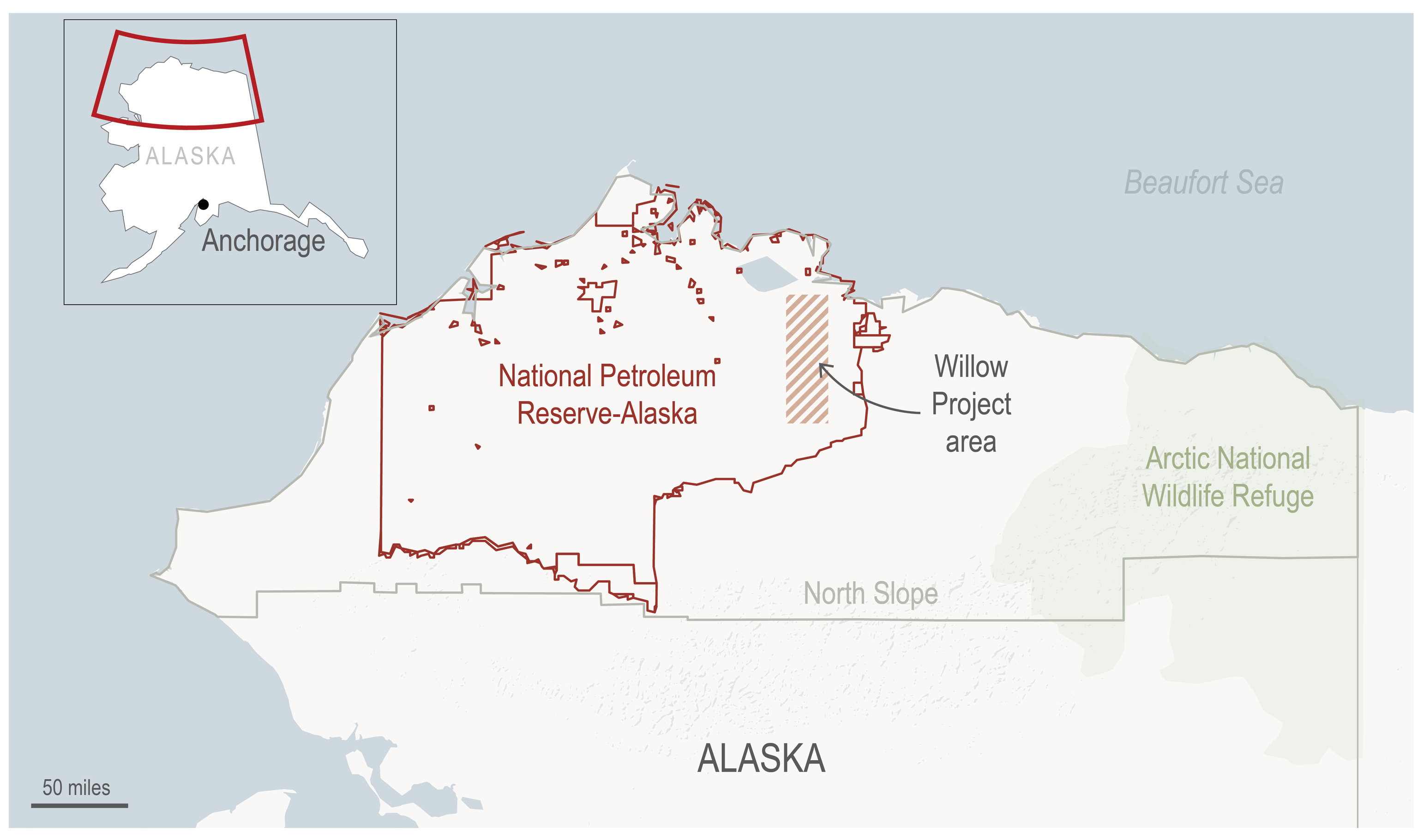Economic reality has prevailed over environmental reality.
In just 24 hours, two news items from Washington have once again highlighted the importance of oil and natural gas in the world economy.
First, the Government of Joe Biden announced the approval of the Willow (which means "willow") oil project in the Arctic.
It was a change of position that was expected, but it is still striking in a president who, the first thing he did upon arriving at the White House, on January 20, 2021, was to cancel the XL section of the Keystone pipeline, which was going to to bring oil from the oil sands of Fort McMurray (Alberta), in Canada, to refineries in the Gulf of Mexico.
Biden justified the closure of the XL
, which was already being built,
by the huge carbon emissions from tar sands oil
.
Then came the Russian invasion of Ukraine, the explosion of inflation, and the cooling of relations between the US and Saudi Arabia.
And the three elements changed the scenery.
The consequence is that the Texas oil company ConocoPhillips will drill 199 oil wells in three areas of gravel and cement built on the frozen soil of the Arctic - the so-called 'permafrost' - which it expects will generate some 180,000 barrels of crude oil per day.
Alaska currently pumps just under half a million barrels per day
, which is less than a quarter of the state's peak production in the early 1980s.
Almost all of Alska's crude - a territory larger than Spain, France, Germany, and Italy combined - is sourced from a strip in the north that borders the Arctic Ocean.
Willow is there, in a region where survival hunting and fishing is still practiced by its inhabitants, and where endangered species such as polar bears and bowhead whales live.
CO2 emissions
According to ConocoPhillips,
Willow will produce a total of about 600 million barrels of crude
.
But that will be accompanied by 239 million tons of CO2, the main gas that causes warming of the atmosphere and acidification of the sea.
That means as many as 1.7 million cars on the roads during that same period of time.
Paradox of paradoxes: Global warming is causing the 'permafrost' to disappear, as anyone traveling through Alaska can see, where roads suffer sudden and unforeseen speed bumps and mountain slopes crumble as the frozen ground it melts.
The melting of the 'permafrost' also releases methane, which is the gas that warms the atmosphere the most.
Map of Alaska showing the area where the Willow project will drill for crude oilAP
The other weather news that came out of Washington yesterday was that the World Bank is considering refinancing oil and gas exploration projects in developing countries.
In 2017, this multilateral institution, which is the world's largest agency in the fight against poverty, had promised to stop financing these types of operations
in 2019.
Now, however, the inability of developing countries to obtain financing that allows them to develop 'clean' energies has forced the institution to rethink that policy, at least in some specific cases.
This is how the World Bank is trying to help develop the enormous natural gas potential of Mozambique, a country where only 30% of the population has access to electricity.
According to the criteria of The Trust Project
Know more
Environment

